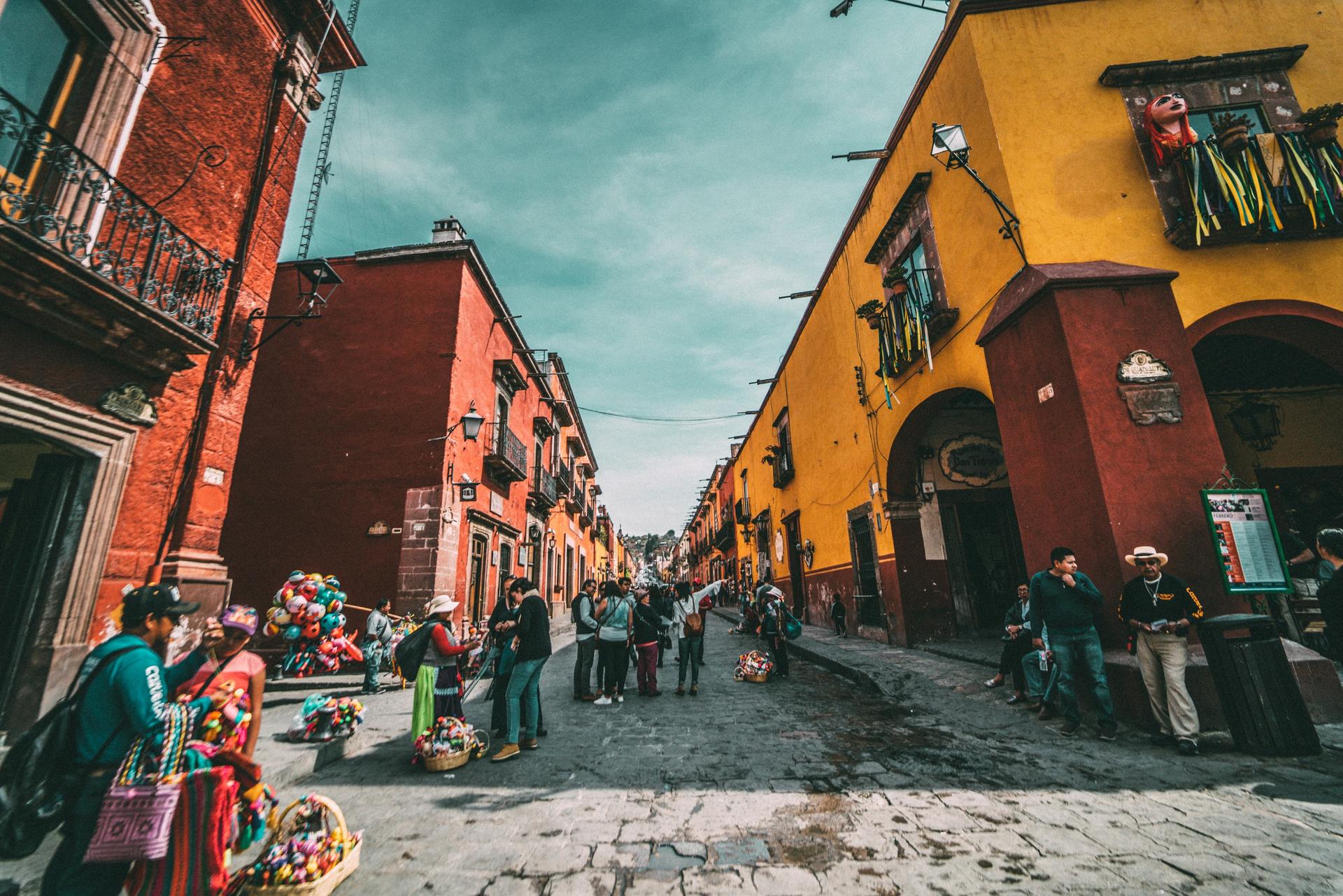Mexico🇲🇽

Mexico is a captivating nation located in the southern part of North America. It shares its borders with the United States, Guatemala, and Belize. Mexico is well-known for its diverse traditions and cultures, rich history, delicious cuisine and picturesque landscapes. The country boasts a plethora of tourist attractions, including the ancient civilizations of Maya, Aztecs, and the Spanish Conquistadors. The stunning natural scenery is dominated by mountain ranges, jungles, and tropical coasts. Mexico is a unique blend of different cultures, offering a rich and rewarding experience for travelers. It is famous for its local festivities like Day of the Dead and Cinco de Mayo.
⚠️Things you should avoid⚠️
- Avoid flashing wealth and exercise caution when using ATMs.
- Avoid tap water and opt for bottled water.
- Avoid remote or poorly lit areas, especially when alone.
- Avoid participating in political demonstrations.
- Avoid risky behaviors that might make you a target.
- Avoid driving at night due to risks such as hijackings.
- Avoid getting involved with drugs as there are strict laws.
- Avoid areas known for high crime rates.
- Avoid discussing sensitive topics like crime and politics.
- Avoid any non-essential travel to the northern border region.
Overall
5
Crime 🔫
3
Mexico has a significant issue with crime, largely driven by drugs trafficking and organised crime. Crime rates are particularly high in regions like Ciudad Juarez, Tijuana, and Acapulco. Kidnapping and robbery are common, so it's crucial for tourists to stay vigilant.
Terrorism 💣
5
Mexico doesn't have a significant history of terrorism. Most of the violence is related to organized crime groups rather than politically motivated acts of terror. However, incidents involving explosives have occurred in recent years.
War ⚔️
7
Mexico has no ongoing war. It maintains a peaceful relationship with its neighbouring countries. The last major armed conflict was the Mexican Revolution, which occurred more than a century ago.
Natural Disasters 🌊
5
Mexico is prone to various natural hazards including hurricanes, earthquakes, and volcanic eruptions. The country experienced a devastating earthquake in 1985 in Mexico City, and another significant one in 2017.
Medical Care 🏥
6
Healthcare in urban areas is of a high standard. However, rural areas face challenges with quality and accessibility. Private healthcare facilities are prevalent in cities, providing excellent treatments.
Tap Water Quality 💧
4
The quality of tap water varies across Mexico. While it's generally safe to use for cooking and bathing, it is recommended to drink bottled water.
Disease Burden 🤒
5
Mexico faces challenges with diseases such as Zika, Dengue Fever and Chikungunya, mostly transmitted by mosquitoes. The country also experienced a significant burden due to the COVID-19 pandemic.
Corruption 💸
3
Corruption remains a significant issue in Mexico, affecting areas like law enforcement, politics, and business. This problem has somewhat hindered economic development and governance.
Safety for Women ♀️
4
Women travelers need to take precautions due to instances of harassment and violence against women. Solo female travelers should avoid remote and poorly lit areas.
Safety for Queer People 👬
7
Mexico has made strides in recognizing LGBTQ+ rights, with same-sex marriage being legal in several states. However, attitudes towards queer people may vary across regions.
Censorship 📺
6
Freedom of speech and the press are recognized in Mexico. However, journalists covering crime and corruption often face threats and violence, leading to self-censorship.
Public Transportation 🚌
6
Public transportation is widely available in Mexican cities with buses, taxis, and metro services. However, safety can be an issue, especially at night.
Other useful information
How safe is it?
While Mexico has considerable issues with crime and violence associated with organized crime, not all areas are equally affected and the majority of tourists have trouble-free visits. It is crucial to stay informed about safety conditions in the specific locations you plan to visit, and always remain vigilant.
Embassies in this Country
Many countries have embassies and consulates in Mexico, primarily in Mexico City, including the US, Canada, UK, and Australia.
Recommended Vaccinations
It's recommended to be up-to-date with routine vaccines before traveling to Mexico. Depending on the areas of travel, additional vaccines like Typhoid, Hepatitis A and B, Rabies, and Dengue could be necessary.
Dangerous Animals
Mexico is home to several dangerous animals. Sharks, crocodiles, and venomous snakes and spiders can be found, especially in rural and wilderness areas.
Visa Requirements
Tourists from most nations do not need a visa for stays less than 180 days. However, a tourist card, available on arrival, is required.
Currency
The official currency is Mexican Peso (MXN). Currency exchange is available at banks, hotels and authorized exchange offices.
Credit Card Acceptance
Credit cards are widely accepted in Mexico, especially in urban areas and tourist destinations.
Is it possible to work and travel in this country?
Mexico offers opportunities for work and travel, particularly in sectors like tourism, teaching English, and volunteer work. However, a proper work visa is required.
Cost of Travel and Living
Mexico is generally affordable for tourists, with the cost of living lower than in many Western countries. Accommodation and food can be particularly cheap, while activities and transportation are moderately priced.